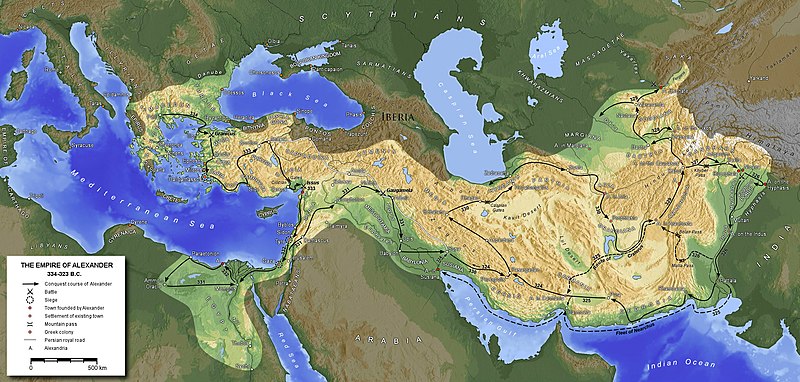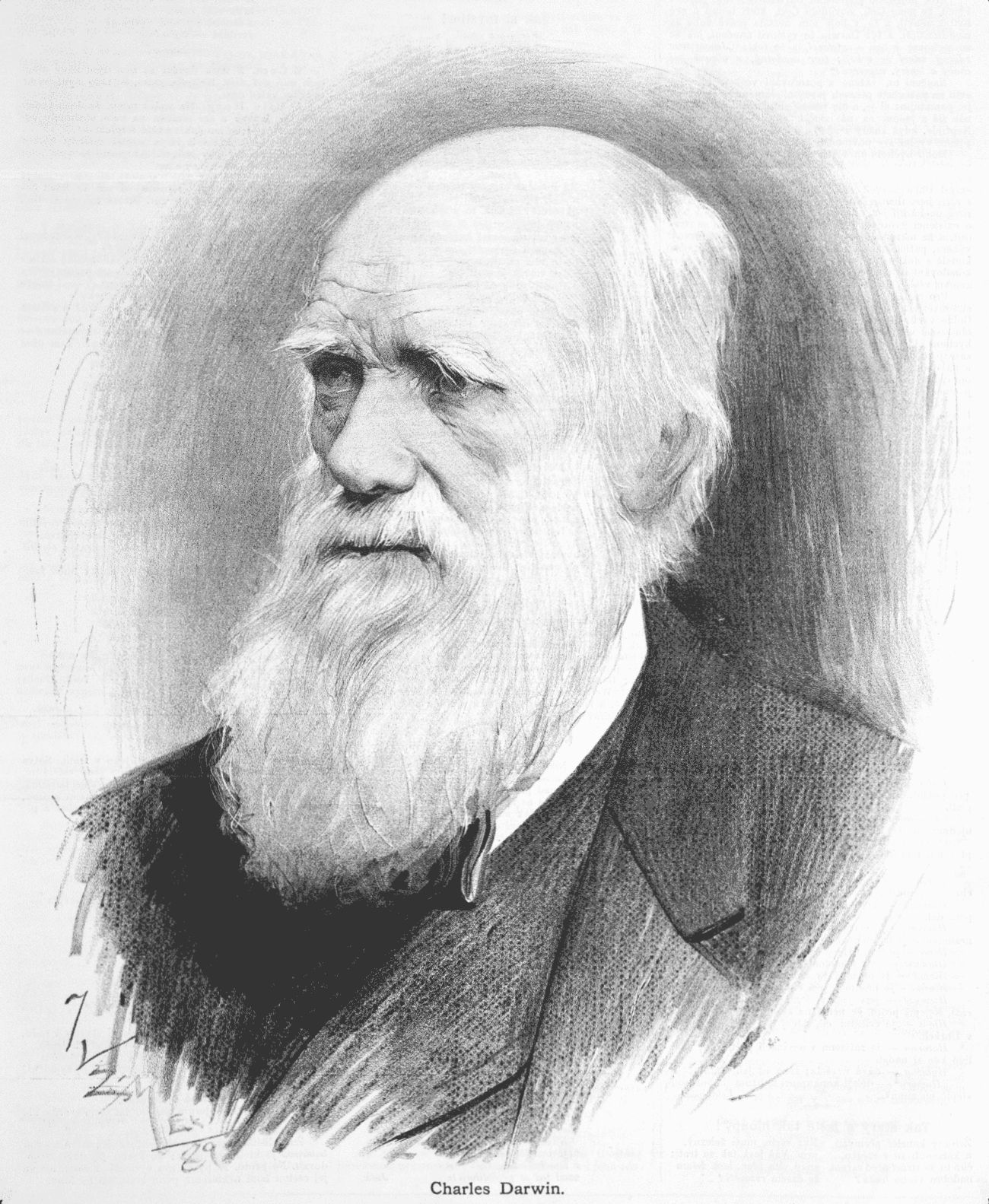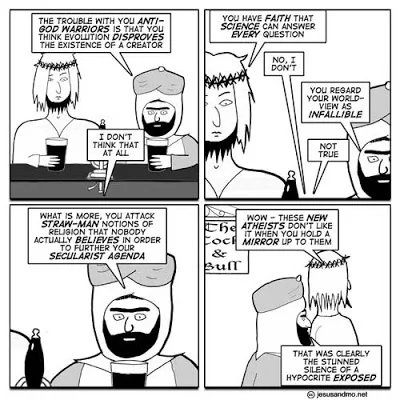
Some people seem to be having a problem understanding the idea of papal infallibility so this blog explains it in easy to understand terms, complete with a few examples of how the Pope uses it.
The important thing to understand is that it gives the Pope fantastic magical powers. Because he is infallible whatever he says becomes fact, automatically. Because he is the only person to have these powers, obviously he is the ultimate source of all truth because he literally creates it at will.
That's if you believe the official dogma.
Papal infallibility is a dogma of the Catholic Church which states that, in virtue of the promise of Jesus to Peter, the Pope is preserved from the possibility of error "when, in the exercise of his office as shepherd and teacher of all Christians, in virtue of his supreme apostolic authority, he defines a doctrine concerning faith or morals to be held by the whole Church"
Infallibility - In general, exemption or immunity from liability to error or failure; in particular in theological usage, the supernatural prerogative by which the Church of Christ is, by a special Divine assistance, preserved from liability to error in her definitive dogmatic teaching regarding matters of faith and morals.
The teaching of the Vatican Council is to be found in Session III, cap. 4, where it is declared that "the doctrine of faith, which God has revealed, has not been proposed as a philosophical discovery to be improved upon by human talent, but has been committed as a Divine deposit to the spouse of Christ, to be faithfully guarded and infallibly interpreted by her"; and in Session IV, cap. 4, where it is defined that the Roman pontiff when he teaches ex cathedra "enjoys, by reason of the Divine assistance promised to him in blessed Peter, that infallibility with which the Divine Redeemer wished His Church to be endowed in defining doctrine regarding faith and morals".
So there we are. The Catholic Church has 'proved', within the Catholic Church's definition of proof, that the Pope is infallible, merely by defining the Pope as infallible, therefore the Pope is infallible. QED.
Let there be facts!
So what has this meant for the world?
 |
| Earth as it used to be |
Well, the most famous example was when the Pope declared that earth was no longer flat but was now a globe. At that instant earth must have changed from being flat to being a globe. Obviously this couldn't have happened
before the Pope's announcement because, no matter how short, there would have been a period during which the Pope was wrong - which is obviously impossible, being infallible. Similarly, it couldn't have happened after the Pope's announcement for the same reason, therefore it
must have happened exactly simultaneously with the Pope's announcement. It also follows naturally from the Catholic Church's 'logic' that there must have been such an announcement because the Catholic Church's official position changed and that can
only happen when the Pope infallibly announces, as the spokesperson for God, that there has been a change in the 'truth'.
Curiously though, there doesn't seem to be a record of this momentous occasion. We just know that in the early Middle ages leading theologians like
Diodorus of Tarsus,
Severian, Bishop of Gabala and
Cosmas Indicopleustes were proclaiming that earth was flat but by the late Middle Ages those such as
Thomas Aquinas were proclaiming it to be spherical and none of them were declared heretical, so we are safe to assume that the infallible Pope changed his mind. Maybe he just announced the change in earth's fundamental shape to a few friends.
 |
| The Universe before 1820 |
The second major change was when earth stopped being the centre of the universe, with the sun and moon going round it and the stars being stuck on the dome over it, to being merely a small planet orbiting one of half a billion suns in one of half a billion galaxies in a vast expanding universe and the stars being transformed into remote astronomical bodies like suns, super novae and galaxies. (I wonder what happened to the dome over earth and all that water it was holding up.)
We can date this event a little better than earth's change from flat to spherical. It happened in 1820 when "...the Congregation of the Holy Office, with the pope's approval, decreed that Catholic astronomer, Joseph Settele was allowed to treat the earth's motion as an established fact."
(Wikipedia - Geocentric model) and so repudiated the infallible papal decrees listed in
The Pontifical Decrees Against the Doctrine of The Earth’s Movement and the Ultramontane Defence of Them. It's a shame the actual time and date in 1820 that the Pope gave his infallible approval for this decree isn't recorded, because that would have been the time it all changed. We could have a special 'Galileo Day' to celebrate it.
 |
Barnacle Goose, Branta leucopsis
Is it a bird? Is it a plane? No. It's a fish... er... duck (official!) |
One example of a Pope changing the natural world by infallible decree is the case of the
Barnacle Goose (
Branta leucopsis). In the Middle ages Catholic bishops in Ireland had declared that Barnacle Geese were fish and thus could be eaten on Friday and during Lent, when consumption of flesh by Catholics was a sin. This was because, so they wrongly believed, Barnacle Geese don't reproduce by laying eggs like other birds; instead they emerge fully formed from barnacles - which are 'fish', obviously (actually barnacles are arthropods, related to crabs but let's not get pedantic, we are dealing with Catholic Church 'facts' here after all).
This all changed when Pope Innocent III declared at the Fourth Lateran Council of 1215 that Catholics were explicitly prohibited from eating Barnacle Geese during Lent because, despite their unusual reproduction (sic), they lived and fed like ducks and so were of the same nature as other birds.
So, at that point Barnacle Geese ceased being fish and became er... ducks. However, they continued to reproduce by growing in barnacles and not by laying eggs like other birds. This of course is still the case, because the infallible papal declaration of the Fourth Lateran Council of 1215 is still in force. People who believe that Barnacle Geese reproduce by flying to breeding grounds of which Medieval Catholic bishops were unaware and where they mate and lay eggs like other geese, should cease in that erroneous belief forthwith. It will remain an error until the Pope announces otherwise and has been an error since well before 1215.
 |
| Pope Pius XII, Euphoria |
Elderly Catholics might still remember the day in 1951 when Pope Pius XII, in a moment of euphoria over Georges Lemaïtre proof of the Big Bang, threw caution to the wind and declared this to be the moment when God said 'Let there be light!' and so the biblical God was now proven by science (was there some doubt?) and so accepted that the universe began several billion years ago and took a long time to develop.
It would seem that present-day science, with one sweep back across the centuries, has succeeded in bearing witness to the august instant of the primordial Fiat Lux [Let there be Light], when along with matter, there burst forth from nothing a sea of light and radiation, and the elements split and churned and formed into millions of galaxies. Thus, with that concreteness which is characteristic of physical proofs, [science] has confirmed the contingency of the universe and also the well-founded deduction as to the epoch when the world came forth from the hands of the Creator. Hence Creation took place. We say: "Therefore, there is a Creator. Therefore God exists!"
Pope Pius XII, 1951
Following some discrete advice from Lemaïtre that tying the proof of God to a falsifiable scientific theory might not be the wisest piece of divine guidance he had received, in fact it was more a Papal Blunder than Papal Bull, Pope Pius XII decided to say no more on the matter, but the damage was done.
At that very moment of course, according to the dogma of papal infallibility, the universe had ceased being a few thousand years old and the product of a six-day special creation and had instantly become several billion years old and the product of a slow, scientifically rational process - and the whole of Genesis had been rendered false, probably mythical or at best merely allegorical. And with that, of course, Pius XII inadvertently abolished original sin, the need for God's forgiveness, and any meaning to Jesus' supposed sacrifice or indeed any purpose to his alleged existence. Oops!
Such is the danger of having the power to create reality by fiat but lacking the wisdom or understanding to apply it judiciously.

The same Pope Pius XII had earlier announced in 1950 that the way life on earth had been created was now, in all important respects, the way Darwin and Wallace had described it in 1859. Previously it had been created the way the Bible described it with all species being created exactly as they are to day by God.
Prior to that announcement, all the evidence supporting Darwin and Wallace, like geology, fossils, anatomy, physiology, etc., had either been put there by Satan to mislead and confuse mankind, or by God to test our faith. Immediately the Pope made his announcement however it all became proof of God's wondrous powers and wisdom in thinking up the process of evolution, setting it in motion and guiding it to produce mankind.
Curiously though, with the age of the universe not being changed from a few thousand years to many billions until 1951, for about a year we had a situation whereby the earth was not old enough for the slow evolutionary process, which was now a fact, to have taken place.
Luckily, another useful Catholic doctrine - that anything God has done which seems illogical, ridiculous, contradictory, or the act of a deranged madman or incompetent fool, is merely a mystery beyond our comprehension and thus proof of God's infinite wisdom - came into play to save the day. Phew!

One change which happened very recently seems to be important for Catholics but appears to have made no difference at all to the rest of the world. This was the abolition of 'limbo' by the Pope on April 7, 2007.
Until that date, because God couldn't stand the sight of the 'souls' of the disgusting little sinners, babies who died before they could be baptised went to a place called 'limbo' rather than Hell, because, although God was repulsed by them, they hadn't done anything wrong other than being born before they could 'accept Jesus as their saviour', so eternal pain and suffering seemed a bit harsh even for the god who had thought up the idea of sin, Hell and eternal pain and suffering in the first place.
So Pope Benedict exercised his infallible powers to change reality and henceforth God will tolerate them, despite their repulsive sinfulness, and 'limbo' has been abolished. It is not clear whether all the babies who were in limbo at the time simply ceased to exist as well or whether Heaven was swamped by a sudden deluge of the many centuries worth of accumulated baby 'souls' arriving instantaneously.
Pope Benedict was quick to point out that babies should still be baptised as quickly as possible though. This obviously had nothing to do with the need to pin a label on them so they could be counted as Catholics and so keep the membership numbers artificially inflated. It was clearly an ecumenical matter based on sound theology and a personal communication from God to Pope Benedict.

Another recent change in reality announced by Pope Benedict on 17 March 2009 was the change in the cause of AIDS. This used to be caused only by the Human immunodeficiency virus (HIV) which can be transmitted during sexual intercourse, the risk of which could be reduced to a very low level by use of condoms. Now however, following a change introduced by the Pope, AIDS is also caused by using a condom.
This again is based on sound theology and a personal communication from God to Pope Benedict and has nothing to do with concern that using condoms routinely as a contraceptive might reduce the number of babies Catholics are producing to be counted in the world-wide Catholic numbers, and would also reduce abject poverty, suffering and hopelessness, the escape from which is sold as a reason to allow the Catholic Church control of your day-to-day lives and so keep the money coming in.
I hope this article has been some help in explaining the idea of papal infallibility and how the Pope can use it to change reality to suit the needs of the
Catholic Church and its clergy people as and when required. What a good thing it was for humanity that the Pope had the infallible idea of infallibly defined his own infallibility and so granted himself these wonderful, magical powers so we don't need to concern ourselves with things like what's real and what isn't.
So there we are. Papal infallibility is not at all hard to understand. We just need to suspend disbelief, abandon rational thinking and believe what we are told to believe. Then we just need to obey all the rules and not ask so many silly questions.
Share
Twitter
| StumbleUpon
| Reddit
 |
 I wonder how devout Christians come to terms with the Bible saying that Jesus said he wan't good because he wasn't God. No doubt those who've come across it and haven't moved swiftly on, have a good apologetic ready...
I wonder how devout Christians come to terms with the Bible saying that Jesus said he wan't good because he wasn't God. No doubt those who've come across it and haven't moved swiftly on, have a good apologetic ready...



















